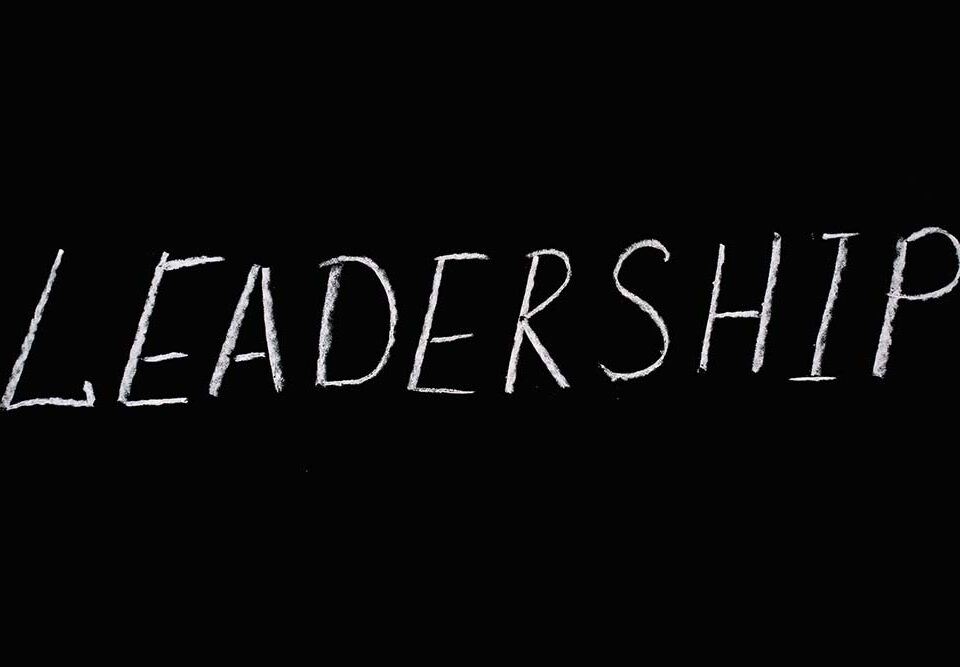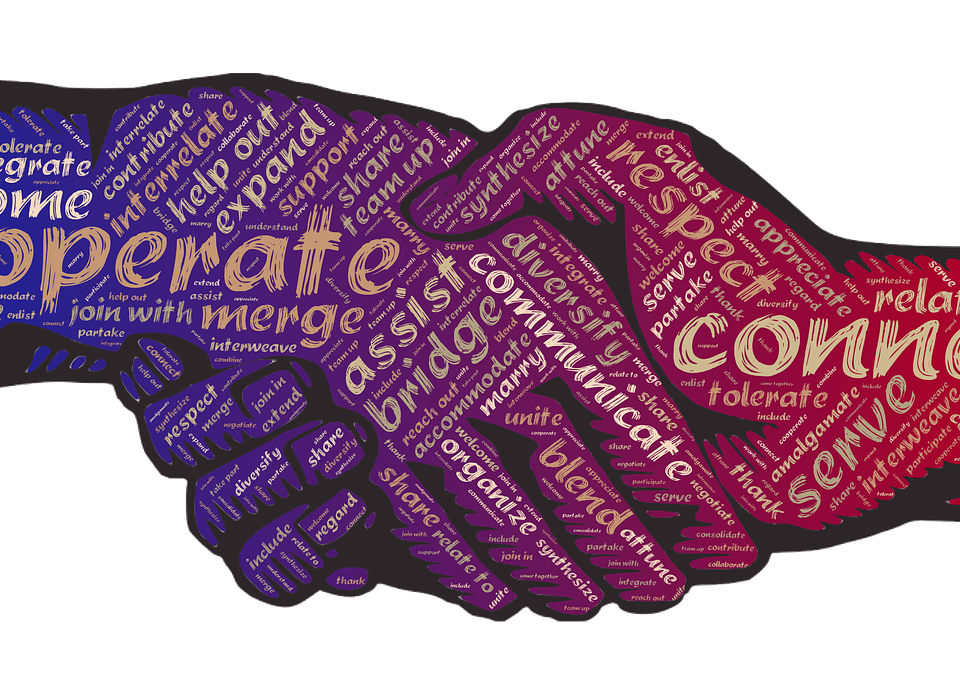- Management Consulting Firm
- +27 11 268 5597
- info@stratalign.co.za
Six Keys to Becoming a More Empathetic Leader

From the Influence of Power to the Power of Influence
February 11, 2021
Toward a Spirituality of Leadership: Six Propositions
April 30, 2021Of the many things the last year has taught us is that little will stand us in more permanent stead than the awareness that empathy is an essential characteristic of 21st Century leadership. Multiple studies have shown that despite the benefits and opportunities of the changes happening in the workplace as a result of lockdowns there are some negative impacts. People feel disconnected, more lonely, unsure as to how to set boundaries, more beset by performance anxieties, and less appreciated than they did when everyone was going to the office daily. This is why I thought it might be helpful to share six keys to becoming a more empathetic leader.
In a study conducted with 6,731 managers in 38 countries the Centre for Creative Leadership (CCL) found as follows:
“We found that empathy in the workplace is positively related to job performance. Managers who practice empathetic leadership toward direct reports are viewed as better performers in their job by their bosses.”
If, as I have alluded to in previous articles, sustainable performance is the result of real partnerships between people in the workplace, then empathy is one of the essential cornerstones of that partnership. But empathy takes us much further as you will see below.
What is empathy?
In short, empathy is a non-judgmental willingness to live yourself into the life journey of another to see their thoughts feelings, and experiences from their perspective. This has been disaggregated into three kinds of empathy by Daniel Goleman as follows:
- Cognitive Empathy: “Simply knowing how the other person feels and what they might be thinking. Sometimes called perspective-taking.”
- Emotional empathy: “when you feel physically along with the other person, as though their emotions were contagious.”
- Compassionate empathy: “With this kind of empathy we not only understand a person’s predicament and feel with them but are spontaneously moved to help if needed.”
Suffice it to say that empathy is a complex human phenomenon that can be learned or enhanced.
Five Key Benefits of Empathetic Leadership in the Workshop.
As indicated above it should be enough to recognize that people who have had the benefit of empathetic leadership demonstrate higher levels of performance as evident in the CCL and many other studies. However, the benefits of empathetic leadership are significantly greater than that. Before moving on to the six keys to becoming a more empathetic leader, I must first mention just five of the key benefits of empathy:
- Empathy unlocks potential
Yes, empathy does indeed unlock human potential. Numerous studies have demonstrated that people who feel that they are heard and understood are significantly more likely to realize their full potential.
- Empathy begets empathy
When people are treated empathetically, they are significantly more likely to treat others more empathetically. This is a benefit of empathy that goes far beyond the workplace. It enhances workplace relationships, improves customer relationships, and could even result in better relationships within families or friendship circles. It is a gift that keeps on giving.
- Empathy is the key to Excellent Employee and Customer Experience
In many organisations the quest for better employee and customer experience is at the heart of their ability to differentiate themselves from competitors. A culture of empathy in and beyond the workplace thus leads to a better experience for both employees and customers. It follows, that if employees have a better experience in the workplaces this will result in a better experience for customers and enhanced differentiation from competitors.
- Empathy is essential to real innovation and product or service design
Innovation is born of empathy. Design thinking is at the heart of innovation in the workplace and beyond. And one of the key features of design thinking is empathy. Design thinking emphasizes the reality that the best innovation happens when the innovation process considers the feelings, needs, and experiences of all stakeholders in the value chain of innovation. Empathy is thus central to designing and developing marketable and sustainable products and services. So, design thinking begins and ends with empathy for the designer, the user, the seller, and the implementor of any innovation. In a nutshell, empathy increases the possibility of innovation.
- Empathy Heals
Finally, empathy is healing. We should not underestimate the degree to which the people in most workplaces are traumatized by the challenges of life. This has become especially true amid the COVID pandemic and the multiple challenges of poverty, inequality, racism, and sexism that are manifested in our society. Even leaders live with their personal trauma. An empathetic human being cannot avoid asking and answering the tough questions about how to address these multiple challenges in their world. And the amazing thing is that the manifestation of empathy does not only heal the recipient of empathy it also heals the giver.
So then let’s turn to how we can become more empathetic in the workplace and beyond by examining Six Keys to Becoming a More Empathetic Leader.
Six Keys to Becoming a More Empathetic Leader – The Anatomy of Empathy
- Empathy as awareness
The beginning of empathy is the awareness of emotions, feeling, and different perspectives. Leaders need to cultivate awareness of their own feelings, and that their perspective is only one of many possible perspectives. It requires leaders to embrace and even show their vulnerability. There is a tendency to regard emotion and feeling as negative and counterproductive in the workplace. The “cowboys don’t cry” culture is still far too prevalent and is counterproductive to empathy. Empathy begins when leaders sharpen their awareness of human beings as emotional creatures and are willing to welcome, celebrate and work within that reality. Learn about empathy, read about it, immerse yourself in it, become it.
- Empathy as listening
Perhaps the most challenging and rewarding dimension of empathy is learning how to listen. True listening requires a willingness to simply “be” in the presence of others and absorb what they are saying with their words, actions, and body language whilst completely suspending judgment or evaluation of what they are saying. Only when people are listened to without interruption or judgment do they truly feel heard.
I have long held that listening is not fundamentally a competence. It is not about how good or bad a leader is at it. It has to do with how leaders view people. When people are attitudinally regarded as commodities or “resources” to be used in the pursuits of organisational goals the chances are they will not be listened to. However, when people are viewed as inherently valued infinite beings with unlimited potential who express themselves rationally and emotionally the inclination is to listen to them. Listening is a function of the degree to which people are valued. Where listening happens people are valued. Where it does not the value of people is diminished. So, cultivate an interest in people. Learn to view them differently so that you listen intently to what they are saying or not saying.
- Empathy as understanding
When deep listening takes place, the result is an enhanced or even transformed understanding of the other, their views, feelings and perspectives. When people feel understood it sets them free to seek to understand the perspectives and feelings of others. It should, however, hastily be added that no-one should assume an ability to fully understand another. The quest to understand others is a journey, not a destination. The more a leader can uncover and reveal about his or her people the more they realize the infinite possibilities of which people are capable of. The challenge is: let your impulse be to understand, to question, to probe and deeply appreciate what is important to the people you encounter.
- Empathy as accountability
I define accountability as “a partnership within which responsibility is given and ownership accepted for strategically aligned and agreed expectations within a mutually supportive and trusting environment.” Within this definition empathy and accountability are intertwined – one cannot exist without the other. Accountability becomes possible where a partnership is established through empathy.
It is within the framework of such partnerships that people can learn to have the tough conversations that are often necessary to unlock possibilities in people and the workplace.
Consequently, empathy is not a way of avoiding the challenges that arise when people work together to achieve common goals. On the contrary, it enables a climate of partnership in which the most difficult issues can be addressed, and the most frustrating problems can be solved. In short, where there is empathy the possibilities are endless.
- Empathy as relationships
Human beings are wired to connect. When there is listening and understanding there is the possibility of connecting. And connecting is what a relationship built on trust and mutual respect is all about. When people feel understood it gives them an invitation to open themselves up to trusting, creating, and believing in possibilities. Such relationships are at the very core of high performing organisations and teams. Where strong relationships are evident people are empowered by a sense of being supported, awakened by a sense of being appreciated, and comforted by a sense of being protected. In such an environment it is almost impossible not to thrive.
The quality of people’s experience in the workplace is fundamentally about the nature of the relationships they experience. This does not mean that everyone becomes friends. It does mean that everyone is treated with the same dignity and respect and is embraced and appreciated as a vitally important part of the team that makes things work. Be bold. Build strong relationships.
- Empathy as caring
Ultimately empathy is about caring. It is about showing up as a leader who cares about what is happening in the lives of his or her people, who is interested in people’s hopes and aspirations, who is there to support in troubled times and open to celebrating in happy times. It is about showing kindness and compassion even in those inevitable crucial conversations in the workplace.
It is when empathy manifests as caring that healing takes place. The negative memories of trauma and abuse give way to the positive possibilities of achievement and fulfilment. Leaders should see themselves as healers and not hesitate to use the superpower of empathy to give effect to that healing.
The workplace and beyond
There is much more to say about empathy. There is no formula. Everyone will find their way of expressing it genuinely and sincerely. So, I encourage you to find your expression of empathy and in that way change your life and those around you every day.
When leaders consciously cultivate empathy in the workplace the ripple effects are felt way beyond the workplace. The influence of empathy extends to personal relationships, families to the playing field, and the strangers encountered every day.
I close with an inspirational quote from Brene Brown:
“Empathy has no script. There is no right way or wrong way to do it. It’s simply listening, holding space, withholding judgment, emotionally connecting, and communicating that incredibly healing message of ‘you’re not alone. ‘”
Alan Brews – Six Keys to Becoming a More Empathetic Leader – March 2021





